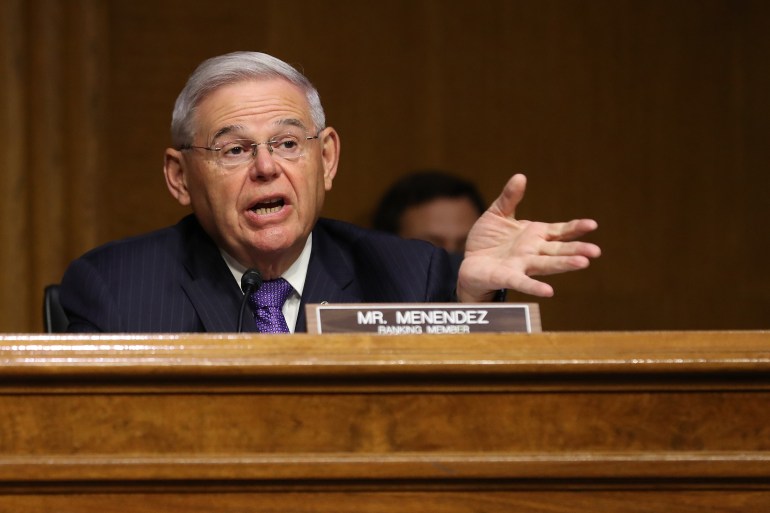Yesterday, Wednesday, the US Democratic senators failed in their endeavor to prevent the sale of advanced F-35 fighters and drones to the UAE, while a prominent Democratic senator warned that the approval of the mega-deal for Abu Dhabi would trigger an arms race In the region.
Most of the Senate, which is controlled by Republicans, voted to reject legislation proposed by the Democrats to prevent the huge arms deal between Washington and Abu Dhabi, which is the second largest sale of drones to one country, and the members of the House voted 50 to 46 against a resolution banning the sale of aircraft. Reaper, the rally to the Emirates.
In another vote, the Senate thwarted an effort to block the sale of F-35 fighters to the UAE, as 49 members of the Senate supported the deal, and 47 opposed it.
Trump's veto
Earlier yesterday, Wednesday, the administration of President Donald Trump issued a formal notice of its intention to veto the two legislation if approved by the House of Representatives and the Senate, and the White House said in a statement that the sales directly support the foreign policy of the United States, and American national security goals by "enabling the UAE to Deterring the aggressive behavior and the increasing Iranian threats, "after the conclusion of an agreement to normalize relations between the UAE and Israel months ago.
The value of the deal is $ 23 billion, and includes 50 F-35s, as well as Reaper attack drones, and more than 14,000 bombs and ammunition.
Critics said that the Trump administration agreed to the arms deal with the UAE in a hurry, and without providing sufficient guarantees that these weapons would not fall into the wrong hands or increase instability in the Middle East, and some senators also criticized the UAE for its involvement in the Yemen war. Which caused the worst humanitarian crises in the world, according to the United Nations.
On the other hand, Republican Senator Roy Blunt said that selling arms to the UAE supports the creation of jobs for Americans, and provides "strengthening of our friends who face with us common enemies, and work directly to move their country and their region in a much better direction."
And US law requires Congress to review major arms deals, and allows senators to impose a vote on bills that reject those deals.
But for the denials to become enforceable, they must be passed in the Republican-led Senate and the House of Representatives, led by the Democrats, and the bills must obtain a two-thirds majority in both houses;
To survive Trump's presidential veto.
Menendez: Do we really believe that we can only sell these weapons to the UAE without other countries knocking on our doors?
(Reuters)
Arms race
Bob Menendez, the Democrat leader on the Senate Foreign Affairs Committee, warned that the approval of the huge arms deal with the UAE would trigger a very advanced arms race. In his speech in the Senate yesterday, Wednesday, he said, "Do we really think we can only sell this to the UAE? Without those other countries knocking on our doors and starting a very advanced arms race? "
Menendez added that Qatar, which is a US ally, is already pushing for F-35s.
On the other hand, the Democratic senator argued over the justification for passing the deal to support the UAE in the face of Iranian threats, and said he agreed that Iran poses a threat;
But he added, "We still have to understand exactly what military threat the F-35s and drones will address" in the confrontation with Iran.
Menendez also expressed concern about the discovery of Emirati arms shipments to Libya, which is torn apart by war and subject to a UN arms embargo.
In the same context, Republican Senator Rand Paul joined the Democrats in their stance on the arms deal, and said, "Will the United States bear responsibility if the UAE misuses these highly advanced weapons?" And the Republican senator added, "Can we trust that people participated in a bombing campaign against civilians in Iraq?" Will they act with greater wisdom in the future? ”, Referring to the UAE authorities.
The F-35 fighter deal, or so-called stealth fighters, had cast a shadow over the normalization agreement between the UAE and Israel, as Tel Aviv announced, shortly after the agreement was signed in mid-September, its opposition to Washington selling these fighters to other countries in the Middle East. ;
To maintain its qualitative military superiority, however, it retreated from its position, and said it was not opposed to this deal.

